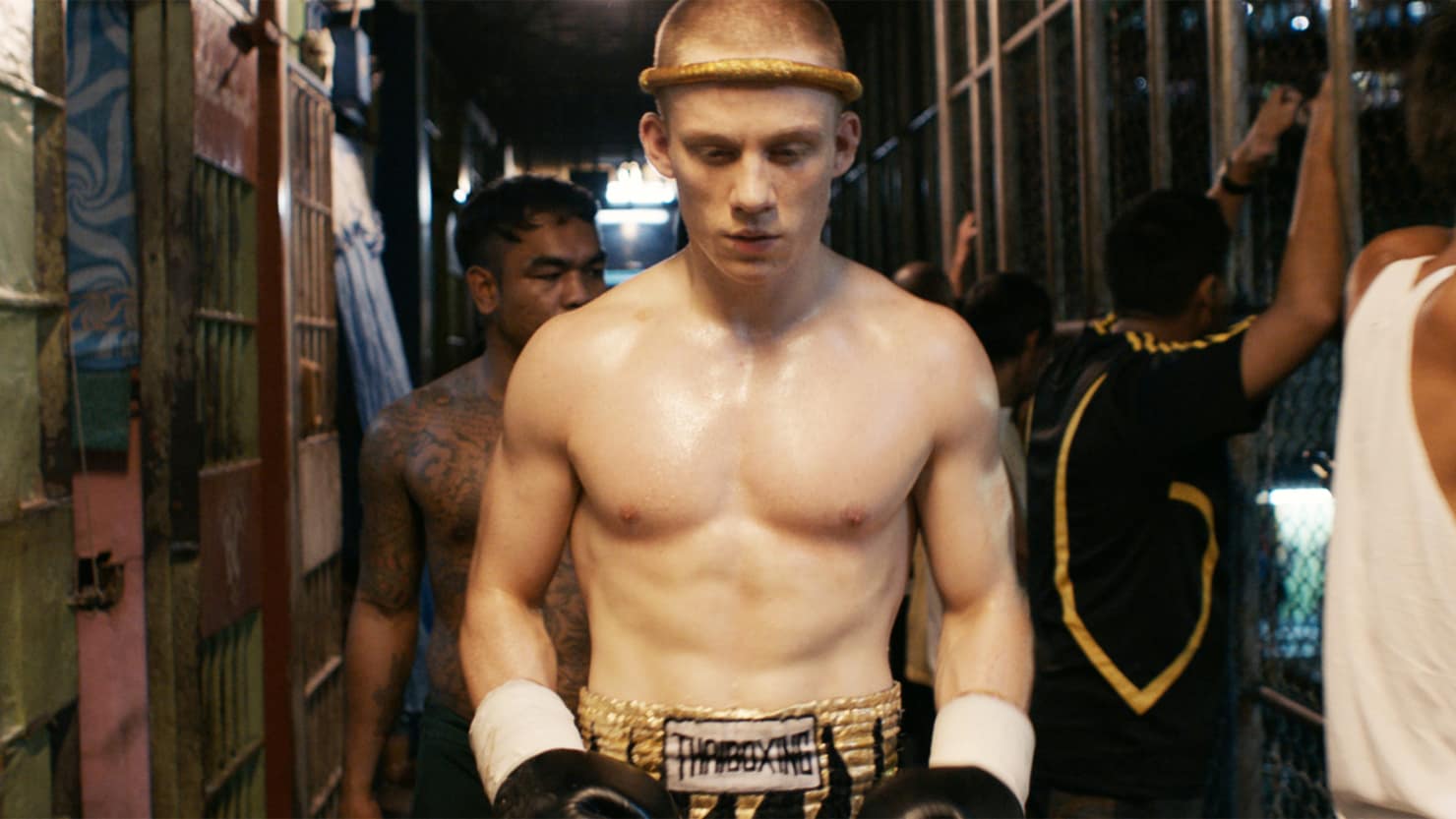
A Prayer Before Dawn is a narrative film, but it plays more like a documentary—which is just the style of director Jean-Stéphane Sauvaire. It slowly and painfully follows the true story of English boxer Billy Moore (Joe Cole) as he is incarcerated in Thailand. Saying that the film moves at a slow pace isn’t a knock on it, though. Sauvaire knows the style and feel he’s looking to achieve, and he pulls no punches in showing both the harsh realities of prison in a foreign country and the debilitating nature of a drug addiction. Also, there is some Muay Thai boxing.
If this were a Hollywood story, then it would be one of redemption. We would see Billy realize the consequences of his actions and set himself on a path to fight for his freedom, but the reality is that Billy doesn’t have many redeeming qualities. There honestly isn’t much of a reason to cheer for him, and he continues to let his drug habits and temper threaten his freedom and even his own survival for much of the film.
While the story closely follows the memoir that the real Billy Moore wrote, it leaves out much of his backstory to instead focus on the two years he spent in Thailand prisons. In truth, the real Billy Moore has spent over 15 years of his life behind bars, even missing this film’s premiere due to a burglary charge, so again, don’t go into this film hoping for a feel-good, Disney ending. What you do get is what I will have to assume is an honest look at life inside of a Thai prison through the bewildered eyes of Billy.
I began tracking this film due to its star, Joe Cole, whom I discovered while watching (what I feel is the best show currently on television) Peaky Blinders, and who also stood out in the well-received Green Room. If A Prayer Before Dawn had been created differently, allowing more dialogue for Cole, then he may have been able to show more range and use this as a vehicle to reach a larger audience, but the film would have lost a sense of realism and its haunting nature.
As it stands, much of his dialogue is with a “lady-boy” inmate named Fame (Pornchanok Mabklang), with whom he develops a necessary friendship and, for a time, romantic relationship. Cole instead relies on the intense persona he is known for on-screen and non-verbal acting techniques. Avoiding elements like a dramatic score, slow-motion fight sequences, or voiceover to convey Billy’s thoughts, helps the film to play more like a biography.
The realistic feel and setting were achieved by using a real prison and 3,000 ex-inmates for filming. Outside of Cole, only two other actors have any prior film credits. This aids in conveying the feeling of terror and confusion that Billy must have felt in prison being the only foreigner. He doesn’t speak the language, and he quickly must demonstrate that he is not an easy target to avoid being the subject of the abuse, rape, and murder that is happening all around him. The conditions of the corrupt prison are unimaginable. He must struggle for basic necessities, sleep side by side with inmates that could end his life at any moment, and yet his focus continues to be on getting heroin and Ya Ba, which is a mixture of methamphetamine and caffeine.
In part, you understand that the drugs are a means to escape the brutality of his surroundings, but it also puts him in jeopardy at every turn. He reaches one single moment of clarity in the film, after nearly beating Muslim prisoners to death as a favor to a guard who also happens to be his biggest supplier. Following that drug-induced act, he determines that he needs to join the Muay Thai boxing team that competes within the prison to earn the preferential treatment that they receive, as well as find a purpose and release for his aggression. Unfortunately, his best chance at surviving prison is also killing him due to years of drug abuse and injuries.
The actual fights make up very little of the total running time of the film, but they are uniquely done in that there are few cutaways and they are instead filmed in long, continuous sequences where the camera moves up close and then around the fighters. It shows the brutal and sometimes chaotic nature of the sport which allows kicks, elbows, and knee strikes in addition to punches. The way that the fights are filmed doesn’t allow the actors to fake contact as most boxing movies would and, in an interview, Cole said that instead, they punched with open hands and moved with the contact to lessen the impact. I am in no way an expert on the sport, but I felt fully immersed in each fight.
This film certainly isn’t for everyone, which is likely why I could not find it playing in a cinema near me and instead had to purchase it OnDemand. Many will find it too violent, repulsive, and perhaps boring, but I have no doubt that Sauvaire achieved exactly what he was after. I can appreciate it for what it is without necessarily recommending it. It isn’t a film that I intend to watch again, but it serves as an honest representation of something that nobody wants to experience for themselves.
Rating: 6/10

